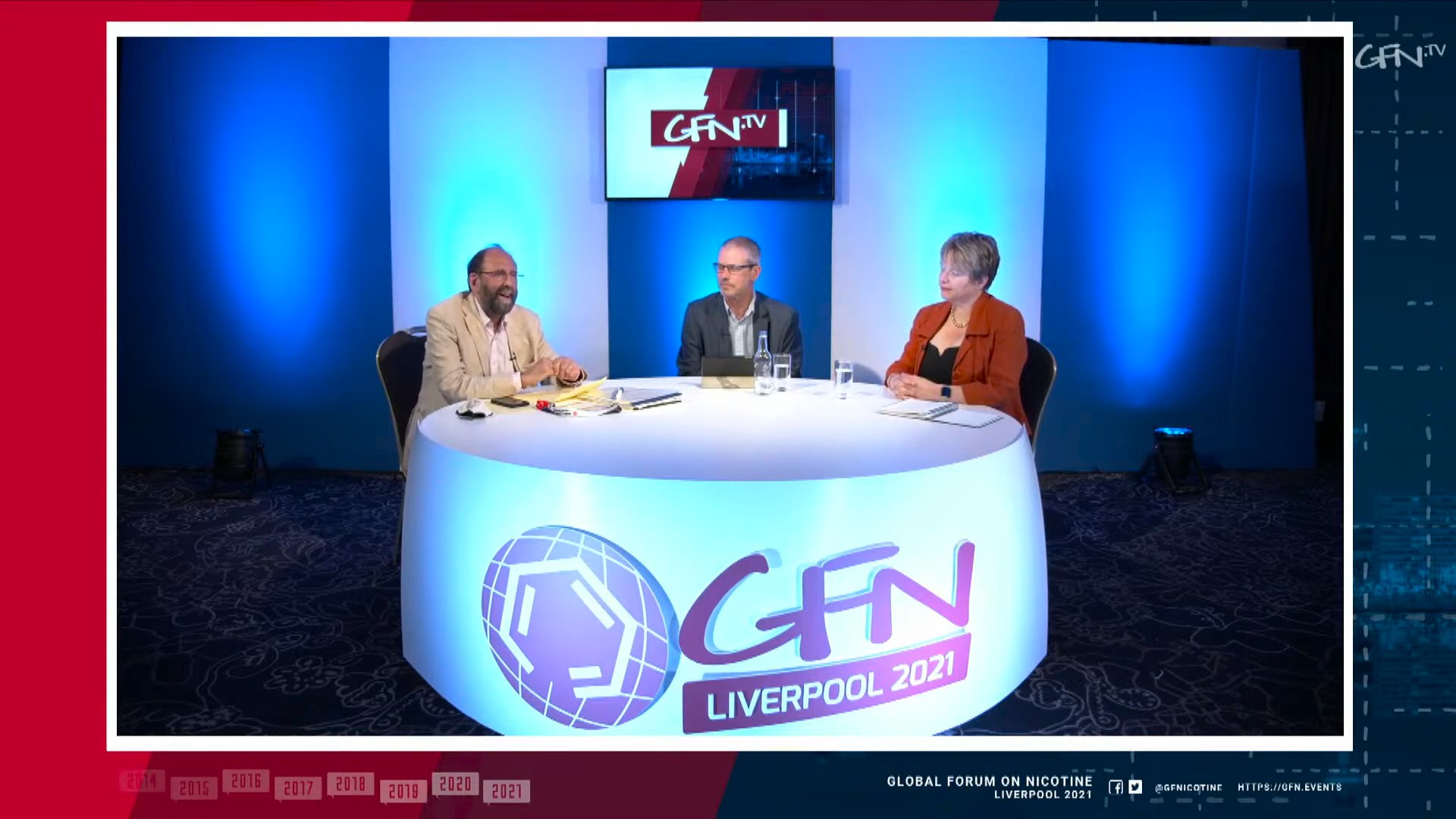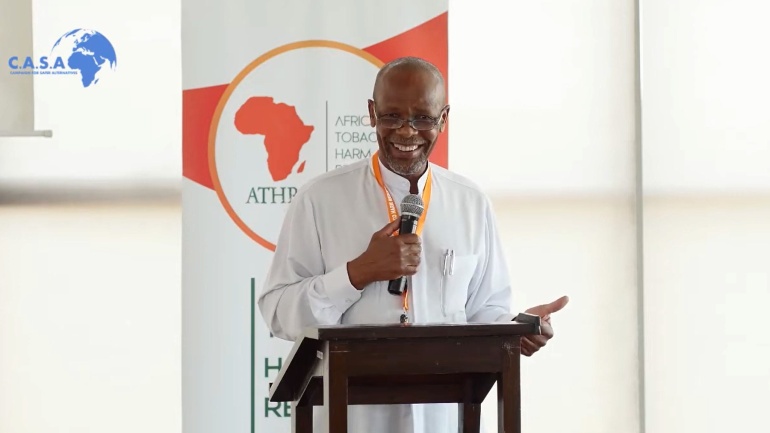International public health specialists, scientists, medical practitioners, tobacco control experts, industry and investment analysts and consumers are convening for the Global Forum on Nicotine 2021 (#GFN21) on Thursday 17 and Friday 18 June in Liverpool, UK and streaming free online, to highlight the vital role of safer nicotine products in the fight to reduce global smoking-related death and disease.
Since the start of the pandemic, the world has lost an estimated 3.75 million people to COVID-19; a devastating figure that remains under half the annual death toll from smoking. Every day, 1.1 billion smokers still light up around the world, a figure that has stalled for over 20 years despite decades of tobacco control efforts. Eighty per cent of the world’s smokers live in low- and middle-income countries (LMIC), least able to cope with the disease burden of smoking, and in higher income countries, smoking is a major cause of health inequalities.
People smoke to obtain nicotine, a comparatively low risk substance, but are harmed by thousands of toxins released when tobacco burns. Experts at the Global Forum on Nicotine will discuss an approach called tobacco harm reduction; people who cannot quit nicotine are encouraged to switch from dangerous combustible or oral products to safer nicotine products including vapes (e-cigarettes), pasteurized snus, non-tobacco nicotine pouches and heated tobacco products. Compared to continued smoking, all are significantly less harmful to health.
Despite an estimated 98 million adult smokers having already switched to safer nicotine products worldwide, public health and tobacco control remains deeply divided on the role of tobacco harm reduction. The Global Forum on Nicotine gives consumers a voice, with many participating as speakers and delegates and a consumer-focused panel on day two. GFN also offers a platform for debate and information-sharing – while remaining focused on the ultimate goal: accelerating the end of smoking-related death and disease.
Speaking ahead of the conference, GFN director Professor Gerry Stimson, emeritus professor at Imperial College London, said, “Up to 98 million consumers worldwide have already made the switch to safer nicotine products. In England, health authorities support vaping to quit smoking and vapes are now the most popular quit aid. Tobacco-related mortality in Sweden, where snus has almost replaced smoking, is the lowest in Europe. And in Japan, cigarette sales have dropped by a third since heated tobacco products came to market. Manufacturers must now ensure safer alternatives are affordable to people in LMIC, not just consumers in high income nations.
Professor Stimson continued, “Worryingly, international tobacco control leaders are doggedly pursuing an irresponsible prohibitionist approach to tobacco and nicotine, while the WHO actively perpetuates misinformation on new nicotine products. Public health will not be served nor lives saved by a war on nicotine, as doomed to failure as the war on drugs. The WHO must refocus its efforts on supporting 1.1 billion adult smokers to quit by all available means.”
Paddy Costall of KAC Communications, conference organiser added:
“At GFN, we offer an inclusive platform to discuss all aspects of nicotine use and we believe it’s important that no one is excluded from the debate. It’s a fallacy that tobacco control and harm reduction are irreconcilable as many believe – they are complementary. With one billion smoking-related deaths predicted by the end of this century, it’s time ideology makes way for pragmatism in order to save lives.”
Three keynotes will be delivered to honour the memory of Professor Michael Russell, psychiatrist, research scientist and pioneer in the study of tobacco dependence and the development of treatments to help smokers quit. Russell’s observation in the British Medical Journal in 1976 that “people smoke for nicotine, but they die from the tar” remains highly influential within the field. Speakers and their respondents will discuss:
- Science and politics: an often fractious relationship – with Fiona Patten MP (Aus) and respondent Christopher Snowdon (UK) (Thurs 12:00 BST)
- Investment in nicotine innovation: risks and rewards for public health – with Jon Fell (UK) and respondent David Sweanor (Can) (Thurs 17:00 BST)
- Why has the WHO FCTC failed to reduce adult smoking and its health impact? – keynote with Derek Yach (US) and respondent Cliff Douglas (US) (Fri 12:00 BST)
Presentations for the four themed panels are already accessible to watch online, with the live sessions instead prioritising discussion and questions. Links to all available presentations are below:
- Science: orthodoxy, challenges and dissent (Thurs 13:05 BST)
Chaired by Clive Bates and Robyn Gougelet
Brad Rodu: How institutional funding in the US works against tobacco harm reduction
Michelle Minton: Nicotine: the new front of America’s war on drugs
Roberto Sussman: How does physics compare to tobacco and nicotine science? - Who uses nicotine and why? (Thurs 14:45 BST)
Chaired by Christopher Russell and Suely Castro
Mirosław Dworniczak: Personal experience as a smoker, vaper and chemist
Charles Gardner: Who is left behind by current tobacco control measures?
Bengt Wiberg: Snus and non-tobacco nicotine pouches for nicotine consumers
Sairah Salim-Sartoni: The obstacles and enablers surrounding the exit strategy - Obstacles to tobacco harm reduction in LMICs (Fri 13:05 BST)
Chaired by Sud Patwardhan and Delon Human
Joseph Magero: Obstacles to tobacco harm reduction in Africa
Nataliia Toropova: State of risk reduction products in the former Soviet Union
Tomas O’Gorman: A Mexican perspective on tobacco harm reduction and LMICs
Sree Sucharitha: A perspective from India on tobacco harm reduction and LMICs - Safer nicotine product regulation: supporting or undermining the end of smoking? (Fri 14:45 BST)
Chaired by Clive Bates and Rebecca Taylor
Robyn Gougelet: The challenge of regulating nicotine: abuse, liability or satisfaction?
Jeannie Cameron: The FCTC and its role in tobacco harm reduction
Gregory Conley: US regulation of nicotine at the State and local level
Details of all sessions are online and the full programme can be downloaded here. GFN is self-funding and does not receive any sponsorship from manufacturers, distributors or retailers of nicotine products, including pharmaceutical, electronic cigarette and tobacco companies. However, the conference operates an open-door policy. Consumers, policymakers, academics, scientists and public health experts participate alongside representatives from manufacturers and distributors of safer nicotine products. The event organizers believe that dialogue and strategic engagement of all stakeholders involved in tobacco and nicotine use, control and production is the only way to effect true, sustainable change – both to industry practices and the public health outcomes related to smoking.




